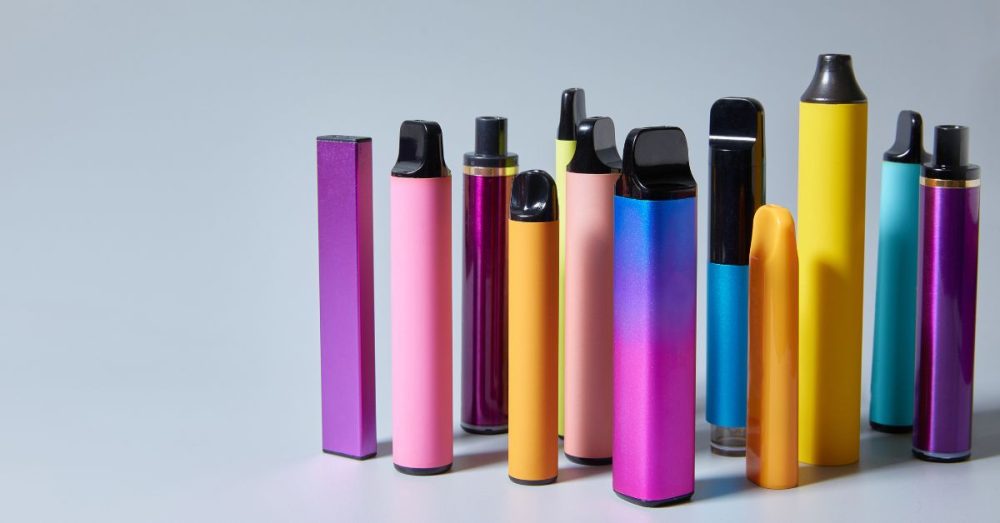(Texas Scorecard) – Texas lawmakers are considering legislation aimed at stopping a flood of illegal e-cigarette products pouring into the state from China—many of them designed to appeal directly to children.
Senate Bill 1698, heard Monday in the Senate State Affairs Committee, would establish a Texas-specific directory of FDA-compliant vape products and ban the sale of any products not listed.
“These are mass-produced in unregulated factories and shipped straight into U.S. retailers, often in direct violation of federal law,” said State Sen. Tan Parker (R–Flower Mound), author of the bill. “In fact, China has banned these products, but [is] willingly fueling the illicit vape market in Texas and across our nation.”
Parker told the committee that some of the devices are being deliberately engineered to attract minors.
“Some of the newest devices are designed like video game controllers with animated screens, flashing lights, and gameplay built right into the vape itself,” he said. “This isn’t accidental. It’s intentional.”
During the hearing, lawmakers and witnesses expressed concern over the aggressive marketing tactics used to target kids. State Sen. Angela Paxton (R–McKinney) pointed to testimony from a father who said his daughter wanted to enter a vape shop “because it looked fun.” Holding one of the devices passed around by Parker, Paxton called the device’s “fun” appearance “a great example of marketing.”
“The problem is, it is marketing to children, and I don’t applaud that,” she added.
San Antonio City Councilman Marc Whyte testified in support of the legislation, stating that more than 2,100 incidents involving vape devices were reported across two local school districts in 2024—some even on elementary campuses.
“Our children are very, very vulnerable to these types of devices,” said White. “This is a public safety issue of the highest priority.”
Some retailers and distributors also testified in favor of the bill, calling it a much-needed step to bring clarity to a chaotic marketplace.
“It’s almost like the wild, wild west out there right now,” said Paul Hardin, president and CEO of the Texas Food and Fuel Association. “We need Texas to support creating a central system for wholesalers and retailers to understand which products are to be sold.”
But not all testimony was supportive. Some in the vaping industry criticized the bill, saying it would hand over the market to big corporations and shutter small businesses.
“The FDA has only authorized about 10 unique vaping products, all of which happen to be owned by out-of-state big tobacco companies,” said Todd Wages, a Texas-based vape manufacturer currently suing the FDA. “If this bill passes, 5,500 jobs in Texas will disappear, as will $311.4 million in wages and benefits paid to those workers.”
“I’m opposed to this bill because it has been driven by out-of-state tobacco companies who have come here to shut down my business in Texas and the Texas customers,” added Wages.
Indeed, Altria—one of the largest tobacco corporations in the world—testified in support of the bill.
“There’s a second market, mainly made up of Chinese illicit vape manufacturers who smuggle their products into this country,” said Steve Callahan, representing the company. “This bill is a common-sense solution.”
Parker dismissed the criticism and reiterated that the bill would only enforce existing federal standards.
“Let me be very clear,” he said. “Senate Bill 1698 does not ban any products that are not already illegal to sell. It does not ban vaping. What it does is restore control to the state of Texas.”
“Federal inaction doesn’t mean Texas has to sit on its hands,” Parker said. “We’ve never waited on the federal government to lead—and we don’t have to now.”


